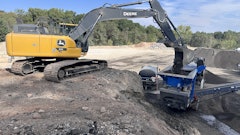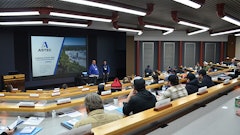
SmartPM Technologies has published the 2025 State of Construction Scheduling Report, analyzing more than 70,000 construction schedules through its Schedule Intelligence™ engine and collecting feedback from over 3,500 industry professionals.
The report outlines key issues and opportunities in current scheduling practices, emphasizing the role of schedules as a critical yet underutilized project asset. According to SmartPM, improving how schedules are managed could lead to better performance, predictability, and profitability across the industry.
“This isn’t just another report — it’s the first deep look into the data that drives every construction project yet is rarely treated with the strategic importance it deserves,” said Michael Pink, CEO of SmartPM. “We’re bringing that to light, and the implications are massive.”
Report Highlights
- 88% of baseline schedules failed to meet industry-recognized quality benchmarks.
- 63% of professionals reported limited understanding or use of their project schedules.
- Only one in four teams reported updating schedules on time.
- Despite being the top indicator of project health, schedules are often disconnected from daily decision-making.
- Inconsistent schedule data contributes to confusion across project functions, from field operations to financial oversight.
Disconnection at the Executive Level
The report also identifies a concerning gap between the use of schedules in strategic decisions and the reliability of the data behind them. While 75% of respondents say schedules are used in executive decision-making, 88% of those schedules do not meet basic quality standards.
“It’s a classic case of blind spots at the top,” said Pink. “Executives are making million-dollar decisions based on data they think is sound, when it’s not. This report reveals just how widespread that problem is, and what the industry must do to fix it.”
The Role of AI and Data Quality
As artificial intelligence becomes more common in construction workflows, the report points to a key concern: poor-quality input data will limit the effectiveness of new technologies. Project schedules, often central to AI models in construction, are only as useful as their accuracy.
“Everyone’s excited about AI,” said Pink. “But if we don’t get serious about improving schedule data first, AI will just automate bad decisions faster. SmartPM believes in ‘Responsible AI’. Responsible AI means using artificial intelligence in a way that’s transparent, accurate, and grounded in clean data so it delivers real value without misleading results.”
Adapting to a Changing Industry
The report connects poor scheduling practices to larger challenges in construction, such as project complexity, shrinking margins and rising stakeholder demands. It argues that treating schedules as static documents contributes to costly delays and miscommunication — and that schedules should function as dynamic operating systems for managing work in real time.
Alongside diagnosis, the report outlines how changes in capital investment, workplace culture and visibility into operations are beginning to shift how schedules are perceived and used across the industry. As more investment flows into scheduling software, the industry is increasingly recognizing the need for better tools and more accurate data.
A Shared Call for Change
The 2025 report includes input from contractors, owners, and consultants and reflects a broad agreement on the importance of improving schedule quality. As digital tools become more central to project delivery, the value of accurate, timely scheduling data is gaining wider acknowledgment.
“This report is a must-read,” said Alex Teplitxky, SVP Marketing at SmartPM. “It gives our industry a shared language and a clear starting point for schedule accountability and better outcomes.”
“The companies that will lead the next decade of construction aren’t just using more tech, they’re using better data. This report shines a spotlight on the foundation every successful project needs and offers a roadmap for making schedule data trustworthy, visible, and actionable.”
Download the full State of Construction Scheduling 2025 report here.




















![Lee Boy Facility 2025 17 Use[16]](https://p1-cms-assets.imgix.net/mindful/acbm/workspaces/default/uploads/2025/09/leeboy-facility-2025-17-use16.AbONDzEzbV.jpg?ar=16%3A9&auto=format%2Ccompress&fit=crop&h=135&q=70&w=240)